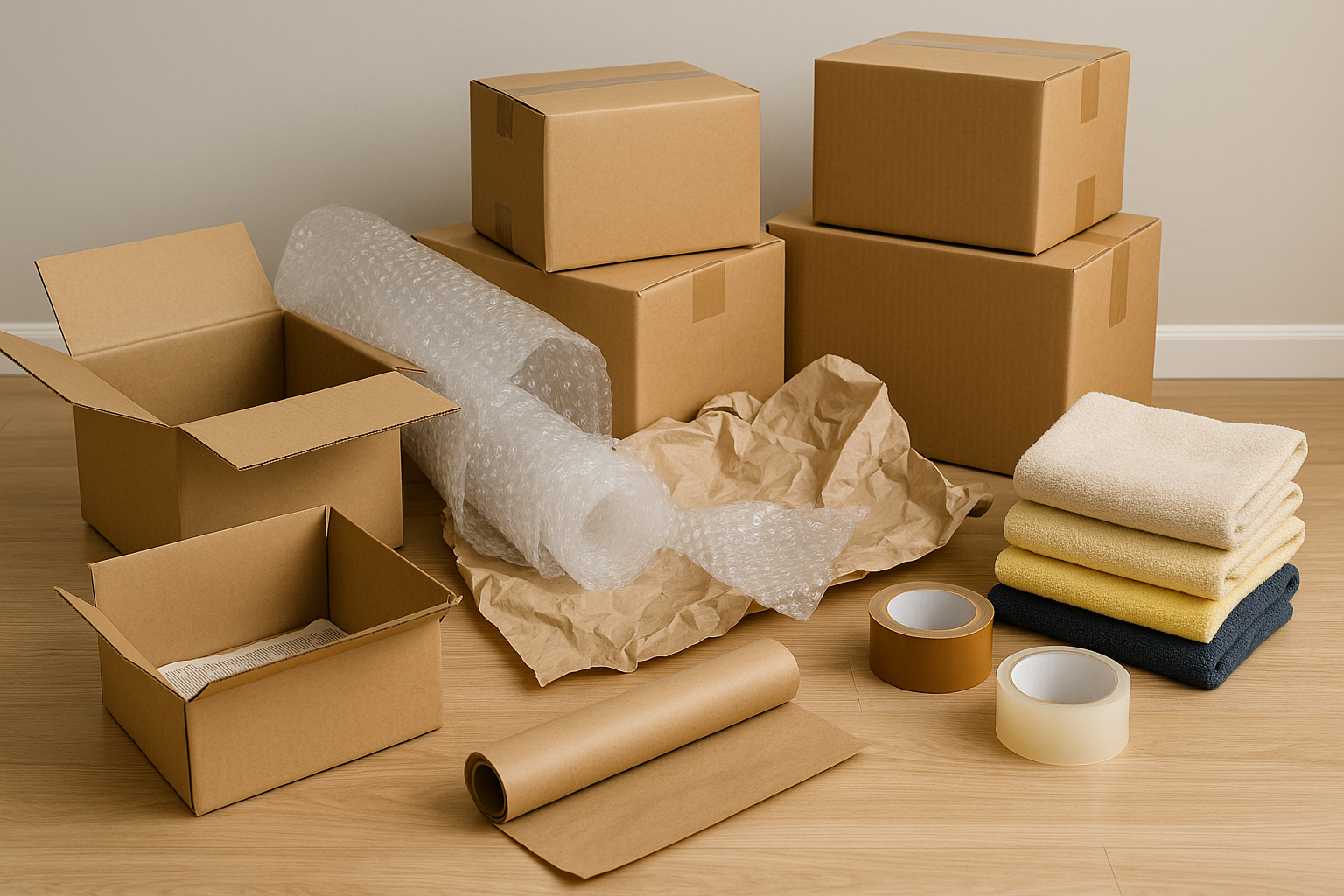Where People Waste the Most Money During a Move?
Moving to a new home can be exciting, but it’s also one of the most expensive life events. Between packing, transportation, and setup, costs can quickly spiral out of control. Many people waste money without even realizing it. Understanding where most of these expenses come from can help you plan better and avoid unnecessary financial stress.
1. Overpaying for Packing Supplies
One of the most common mistakes people make is spending too much on boxes, tape, and bubble wrap. Moving supply stores often charge premium prices for items that can be sourced for free or cheaper. Grocery stores, offices, and local marketplaces frequently have sturdy boxes they’ll gladly give away. Reusing old newspapers, towels, or blankets as padding instead of buying rolls of bubble wrap can also save a surprising amount. Choosing a trusted moving company like Comfy Moving ensures you get professional advice on what packing materials you actually need — and how to avoid overspending.
- Ask local stores for free boxes
- Use towels and linens instead of bubble wrap
- Compare prices online before buying supplies
2. Hiring Movers Without Comparing Quotes
Many people hire the first moving company they find online without getting multiple estimates. This can lead to paying hundreds of dollars more for the same service. Always request at least three quotes, check reviews, and make sure the company provides a written estimate with all potential fees included. Beware of low-ball offers — they often come with hidden charges for stairs, distance, or heavy items.
3. Paying to Move Items You Don’t Need
Transporting everything you own, including old furniture, outdated appliances, or rarely used items, adds unnecessary costs. Movers usually charge by weight or volume, so every extra box matters. Before packing, declutter your home — sell, donate, or discard anything you don’t truly need. A garage sale or online marketplace can even turn your clutter into extra cash.
If you’re planning a long relocation, services like Long Distance Moving from Comfy Moving can help you organize your trip efficiently. Professional movers handle logistics, packing, and transportation so you don’t pay extra for mistakes or wasted space in the truck.
4. Forgetting About Timing and Flexibility
Moving during peak season — usually summer or weekends — significantly increases costs. If your schedule allows, plan your move for a weekday or off-season month like October through April. Rates can be 20–30% lower, and availability is better. Booking early also prevents last-minute price spikes.
- Avoid summer weekends and holidays
- Move midweek or midmonth for lower rates
- Book movers several weeks in advance
5. Ignoring Insurance Options
Skipping insurance may seem like a way to save money, but it can cost much more if your belongings are damaged or lost. Standard mover liability coverage is often minimal, and replacement costs for electronics or fragile items can add up fast. Check your homeowner’s or renter’s insurance policy, and if needed, purchase full-value protection from your moving company.
6. Eating Out and Last-Minute Purchases
In the chaos of packing and unpacking, many people eat out or order delivery for convenience. These small expenses quickly snowball into hundreds of dollars. Plan ahead by preparing meals that can be stored in coolers or cooked easily after the move. Also, avoid impulsive purchases for new decor or furniture until you’re fully settled — it’s easy to overspend before you know what truly fits the new space.
- Prepare simple meals before moving day
- Keep snacks and drinks on hand
- Wait before buying new furniture or decor
7. Not Canceling or Transferring Subscriptions
Forgetting to cancel utilities, gym memberships, or streaming services tied to your old address is another silent money drain. Contact all service providers at least two weeks before your move to update or cancel accounts. Many companies require notice to avoid extra billing cycles.
8. Failing to Plan for Hidden Fees
Even with careful budgeting, hidden expenses can catch you off guard — elevator fees, parking permits, tolls, storage charges, and cleaning services all add up. Ask your movers about any additional fees in advance and include them in your estimate.
- Ask about extra charges before signing a contract
- Include tips, tolls, and parking in your budget
- Reserve elevator and parking space in advance
Final Thoughts
Most financial waste during a move happens because of poor planning and lack of awareness. By taking time to compare prices, declutter, schedule wisely, and track every expense, you can save hundreds or even thousands of dollars. A smart move isn’t just about getting from point A to point B — it’s about doing it efficiently, with your wallet intact.







